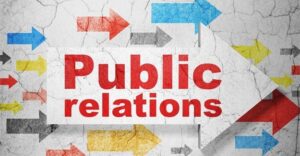As we race towards 2025, technology companies find themselves in the midst of a perfect storm of disruption, opportunity, and responsibility. The rapid pace of innovation has transformed the way we live, work, and interact with the world, but it has also created new challenges. For public relations professionals working in the tech sector, this presents both a profound opportunity and a heightened challenge: How do you position complex technologies in ways that build trust, demonstrate value, and ethically navigate the complexities of data, privacy, and social responsibility?
Technology PR has traditionally been about showcasing products, highlighting breakthroughs, and positioning companies as leaders in a fast-paced industry. But as we move further into the digital age, technology PR must evolve beyond these traditional tactics. In 2025, technology PR will be driven by a new set of imperatives—trust, transparency, and ethical communication. It will be about telling stories that not only demonstrate technological advancement but also emphasize the broader implications of these technologies on society and the future of work, security, and privacy.
The Growing Importance of Trust in Technology PR
As technology continues to play an increasingly central role in our daily lives, trust will be the most crucial element in shaping the narrative for any tech company. Consumers and businesses alike are more skeptical than ever about how technology impacts their privacy, data security, and even mental health. From Facebook’s data scandals to fears about AI’s impact on jobs, technology companies must now contend with an environment of heightened scrutiny and a distrust of large tech firms.
In this climate, technology PR must prioritize transparency. It’s no longer enough to simply talk about the cool features of the latest product or innovation. Tech companies must engage in open, candid conversations with their audiences, including addressing their concerns about how new technologies might impact them. PR strategies in 2025 will involve not just selling products but building trust in the brand itself.
For example, data privacy will remain a central issue for consumers in 2025. As regulations around personal data tighten globally, technology companies must communicate how they are safeguarding user data in ways that are both compliant and in the best interests of the consumer. For instance, Apple’s commitment to privacy with features like App Tracking Transparency offers a clear communication strategy that positions the company as an advocate for consumer rights.
Tech companies that are transparent about the data they collect and the ways in which they protect that data will build stronger relationships with their customers. PR professionals will be tasked with ensuring that these messages reach the right audiences and resonate in a way that fosters credibility. This means using clear, understandable language rather than relying on technical jargon, which can alienate non-expert audiences.
The Need for Ethical Storytelling
As we move into 2025, one of the most critical shifts in technology PR will be the emphasis on ethical storytelling. The growing concern over the societal impacts of technology—whether it’s the role of AI in decision-making, the implications of surveillance technologies, or the risks of misinformation—has placed ethics front and center in the tech world.
Tech companies are increasingly being called upon to take responsibility for the products they create and the societal consequences of those products. From the ethics of AI and facial recognition technology to the sustainability of electronic waste, the public’s demand for ethical tech has never been higher. This shift presents both a challenge and an opportunity for PR professionals. How do you tell the story of groundbreaking technology in a way that acknowledges its ethical complexities without alienating consumers or stakeholders?
In 2025, PR teams will need to craft stories that highlight the ethical considerations of technology development. For instance, if a company is releasing a new AI-powered product, the messaging must acknowledge the potential risks associated with such technology, while simultaneously explaining how the company is working to mitigate those risks. This means engaging in a candid dialogue with both the public and the media about the ethical dilemmas that tech companies face and demonstrating a commitment to responsible innovation.
A good example of this is Microsoft’s approach to AI ethics. The company has taken significant steps to establish guidelines for the ethical development of AI, and it has communicated these steps clearly to the public. Microsoft’s PR strategy has centered on the idea that AI can be a force for good, but only if developed and deployed with strict ethical guidelines in place. This type of ethical storytelling will become more important in 2025 as tech companies continue to navigate the complexities of new technologies.
Leveraging Influencers and Thought Leadership
In 2025, the traditional role of the media as the sole conduit of tech news will be disrupted by an increasing reliance on influencers and thought leaders. Social media platforms, podcasts, and YouTube channels have become critical spaces for technology PR teams to reach target audiences, particularly younger demographics that consume information in different ways than traditional media consumers.
Tech companies will need to engage with influencers who not only have large followings but who are also respected for their expertise in the tech field. PR professionals will need to identify influencers who align with the company’s values and can communicate its messages authentically to their followers. This will require a deep understanding of the influencers’ audiences, as well as the ability to craft tailored content that feels genuine rather than promotional.
Additionally, thought leadership will become a cornerstone of technology PR. In 2025, consumers will want to hear directly from CEOs, CTOs, and other company leaders about the vision and future of technology. PR teams will need to facilitate opportunities for tech executives to participate in interviews, panel discussions, and public speaking engagements to position them as credible voices in the industry.
This emphasis on thought leadership not only builds brand credibility but also helps shape the broader conversation about technology’s role in society. Leaders who can speak confidently and ethically about the future of tech will help humanize the company and foster trust with stakeholders.
Crisis Management in the Tech Space
With the increased reliance on technology comes the inevitable risk of public backlash when things go wrong. Whether it’s a data breach, an AI malfunction, or the ethical missteps of a tech company, technology PR teams must be prepared for crisis management. In 2025, tech companies will face a new level of scrutiny when things go wrong, and their ability to navigate a crisis with transparency, accountability, and humility will be critical.
The first step in managing a crisis is having a proactive media relations strategy in place. PR teams must be prepared with crisis communication plans that include clear messaging, designated spokespeople, and rapid response protocols. In an age of social media and instant news, tech companies will need to respond quickly to any crisis to prevent misinformation from spreading and to control the narrative.
For instance, in the event of a data breach, a tech company must immediately acknowledge the issue, provide clear information on the scope of the breach, and outline what steps are being taken to resolve it. Failure to do so risks exacerbating the crisis and damaging the company’s reputation. Companies like Tesla, who have faced their own controversies, have shown how important it is to engage with the media quickly and transparently to avoid further damage.
The Role of AI and Automation in Technology PR
As technology PR moves into 2025, AI and automation will play a significant role in transforming the way PR teams operate. From automating media outreach to analyzing sentiment across social media platforms, AI tools will make it easier for tech companies to engage with journalists, monitor their reputation, and track the effectiveness of their PR campaigns.
However, while AI will be a valuable tool, it cannot replace the human element in PR. In the world of technology, where public perception can change in an instant, the need for skilled communicators who can navigate sensitive issues with nuance and empathy will be more important than ever.
In 2025, technology PR will require a shift in focus from simply promoting products to addressing the broader implications of technological innovation. Building trust, emphasizing ethical practices, and leveraging new platforms like influencers and thought leadership will be central to the future of PR in the tech industry. As technology continues to evolve and shape our world, PR professionals will play a key role in ensuring that these advancements benefit society while remaining accountable, transparent, and ethical.




